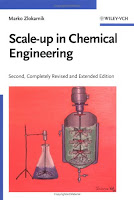This text is organized into a framework that provides relevant theory, along with a series of hands-on workshops that employ computer simulations that test and allow for exploration of the theory.
- Chapter 1 provides a historical overview of the field.
- Chapter 2 introduces the very important and often overlooked topic of instrumentation.
- Chapter 3 we ground the reader in some of the basics of single input – single output systems. Feedback control, the elements of control loops, system dynamics including capacitance and dead time, and system modelling are introduced here.
- Chapter 4 highlights the various PID control modes and provides a framework for understanding control-loop design and tuning.
- Chapter 5 focuses specifically on tuning. Armed with an understanding of feedback control, control loop structures, and tuning.
- Chapter 6 introduces some more advanced control configurations including feed-forward, cascade, and override control.
- Chapter 7 provides some practical rules of thumb for designing and tuning the more common control loops found in industry.
- Chapter 8 we tackle a more complex control problem: the control of distillation columns. As with the rest of this text, a combination of theory and applied methodology is used to provide a practical treatment to this complex topic.
- Chapter 9 introduces the concept of multiple loop controllers.
- Chapter 10 we take a look at some of the important issues relating to the plant-wide control problem. Finally, up-to-date information on computer simulation for the workshops can be found on the book website.
Although this text is designed as an introductory course on process control for senior university students in the chemical engineering curriculum, we believe this text will serve as a valuable desk reference for practising chemical engineers and as a text for technical colleges.
We believe the era of real-time, simulation-based instruction of chemical process control has arrived. We hope you’ll agree! We wish you every success as you begin to learn more about this exciting and ever changing field. Your comments on and suggestions for improving this textbook are most welcome.
Download link below, Enjoy
Selengkapnya...










